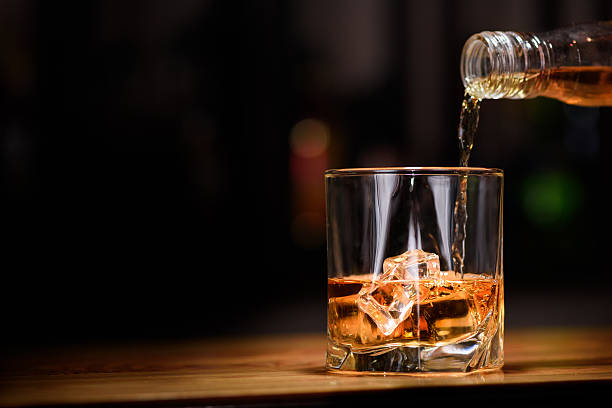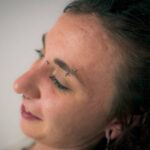Are you wondering how long does alcohol stay on your breath? In addition to being a topic of curiosity, this is an important issue to consider when it comes to driving, workplace safety protocols, and other social settings. Understanding how long alcohol stays on one’s breath can be the difference between making safe decisions and ones that could have serious repercussions. Therefore, in this blog post we will explore what factors affect the duration of how long alcohol remains on someone’s breath after consuming alcoholic beverages.
Contents
Definition of alcohol
Alcohol, also known as ethanol, is the main component in beer, wine and spirits. It has been around for centuries and is typically consumed socially or as part of a religious ceremony.

Why does alcohol make your breath smell?
When alcohol is consumed, it enters the bloodstream in a matter of minutes. The ethanol travels to the lungs where a portion of it is exhaled by breath and can be detected through odor. A range of factors influence how long this scent remains on someone’s breath, as well as when it reaches its maximum intensity.
How long does alcohol stay on your breath?
The duration of how long does alcohol stay on your breath depends on a variety of factors including how much you drank, body weight, gender, food consumption and metabolic rate. Generally speaking, it will take anywhere from 12 hours to 24 hours for the alcohol scent to completely dissipate. However, most people will not detect the odor on their breath after 8-10 hours.

What are the symptoms of alcohol breath?
The symptoms of alcohol breath are often described as having a strong smell, similar to that of nail polish remover or paint thinner. Other symptoms may include: bad taste in mouth, dry mouth, and decreased alertness.
How much alcohol does it take to smell on your breath?
The amount of alcohol that must be consumed to produce a noticeable smell on your breath varies between individuals. Generally speaking, it takes about 4-6 drinks for someone to begin smelling like they have been drinking.

The best way to remove alcohol from your breath
The best way to remove alcohol from your breath is to drink a glass of water and brush your teeth. Drinking water helps dilute the concentration of alcohol in your saliva, while brushing your teeth removes any remnants of alcohol that are lingering on your tongue or teeth. You should also avoid eating strong-smelling foods like garlic and onions, which can make breath smell worse. Additionally, chewing sugarless gum or mints can help mask the smell of alcohol on your breath. Drinking coffee is also a popular way to reduce the odor of alcohol on your breath, but it should be done in moderation as coffee can cause dehydration. It’s important to remember that these methods are not a cure-all and if you have consumed excessive amounts of alcohol, it’s best to seek medical attention.
What are the long term effects of alcohol on your breath?
The long term effects of alcohol on your breath can include having an overall foul odor, increased buildup of bacteria in the mouth, and dry mouth. Additionally, long-term use of alcohol can lead to oral health issues such as cavities, gum disease, tooth decay, and even a heightened risk for oral cancer.
Conclusion How long does alcohol stay on your breath
In conclusion, alcohol can stay on your breath for anywhere from 12 to 24 hours depending on how much was consumed and a variety of other factors. It’s important to remember that drinking too much alcohol can put yourself and others in danger. If you have consumed excessive amounts of alcohol, it is best to seek medical attention. Furthermore, if you are concerned about the smell of alcohol on your breath, it’s best to drink plenty of water, brush your teeth, avoid strong-smelling foods and limit coffee consumption. Additionally, long-term use of alcohol can have serious consequences for oral health and so moderation is key.
FAQ: Alcohol breath
Will you get arrested for DUI if you have alcohol on your breath?
Can you be arrested for DUI even if your BAC is less than 0.08? Yes, if you were impaired to the point where your normal faculties were affected. Don’t take any chances – be aware of the consequences of drinking and driving.
Which alcohol has no smell on breath?
Discover the surprising truth about the odors of your favorite drinks – scotch and other stronger spirits actually have a weaker aroma than you might think! And if you’re looking for a truly odorless option, vodka is the way to go.
Can you smell alcohol on breath?
Alcohol can emit a recognizable scent on one’s breath, making it noticeable to those within proximity. As time passes, alcohol will enter the bloodstream and eventually reach the lungs, where it will be expelled through breathing.
How would you describe alcohol breath?
“Alcohol breath” – the distinctive odor that accompanies the consumption of alcohol – is not only limited to the breath, but can also emanate from the body of a very intoxicated person. It is a scent that invokes not only the unmistakable aroma of alcohol, but also a hint of partially digested liquor.
What are the complications of alcohol breath?
Beware of alcohol breath – it can cause more than just social issues. Dehydration, oral health problems, and embarrassing situations are just a few of the potential complications. Even more seriously, impaired judgment can lead to dangerous situations or DUI charges. To avoid these risks, drink responsibly and be aware of the consequences of excessive alcohol consumption.
Can mouthwash mask alcohol on breath?
Keep your alcohol breath a secret with this simple solution: mouthwash. A quick gargle can effectively mask the smell, at least for a while. For even better results, try fighting fire with fire and opt for a stronger mouthwash. So go ahead, enjoy your night out without any worries.
Is alcohol breath contagious?
Don’t worry, alcohol breath cannot be contagious. It’s a unique scent that only comes from the mouth of a person who has been drinking. So there’s no need to fear catching it from anyone else.
Can your breath smell like alcohol without drinking?
Having alcohol breath despite not drinking could be a sign of a hidden health issue. Don’t jump to conclusions too soon! Bad breath, even that which is often associated with alcohol, might be due to underlying medical problems such as diabetes. Don’t let misconceptions about the causes of bad breath lead you astray.
Can breathalyzer devices accurately measure alcohol on breath?
Breathalyzers can be inaccurate, with a margin of error up to 15%. Shockingly, around 20% of DUI charges result in false accusations due to faulty breath tests. For the most precise and reliable results, a blood test is the recommended method for testing a person’s BAC.
Can drinking water help reduce alcohol on breath?
Research shows that drinking water and hyperventilating before blowing into a breathalyzer can significantly reduce your blood alcohol content (BrAC) readings. However, be aware that breathalyzer operators should also be aware of these methods, as they could potentially result in falsely lower readings.

Trayce served as a grassroots leader and activist in Texas as President of Dallas and Texas Eagle Forum.
Trayce is Mom Caucus Member, Texas Conservative Mamas, Texas Conservative Grassroots Coalition Leader, and Grassroots America Champion of Freedom Honoree.
She currently serves as the Eagle Forum National Issues Chair on Human Trafficking.
Trayce received a Bachelor’s Degree in Marketing from Texas A&M
Currently, she homeschools her youngest child age 13 and graduated her six oldest children, ages 31 to 19.







